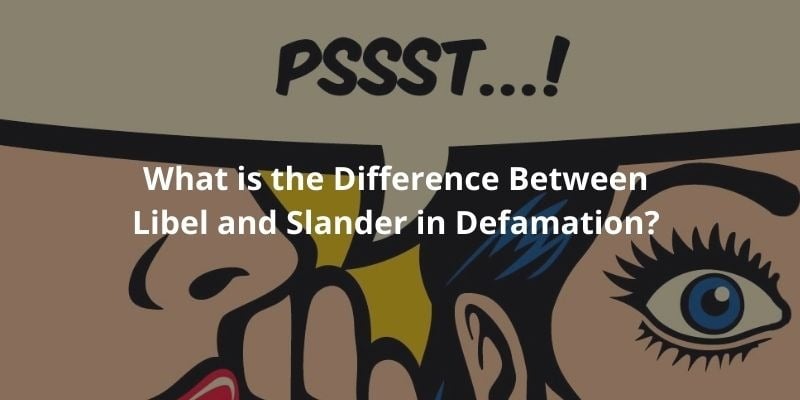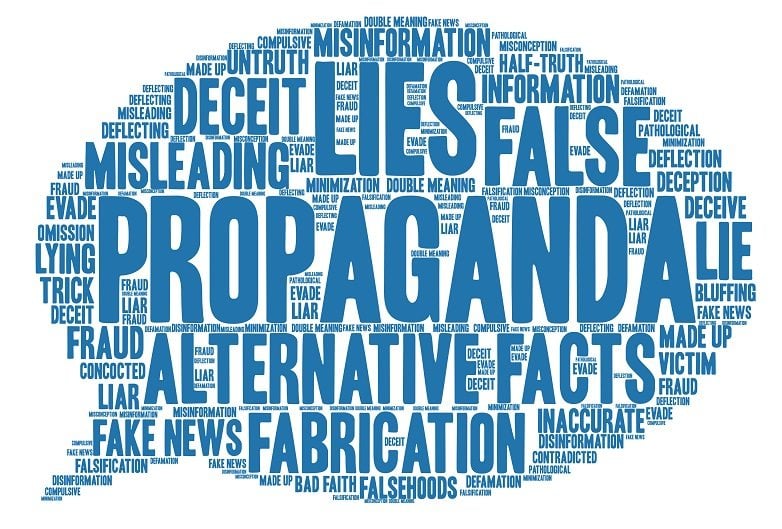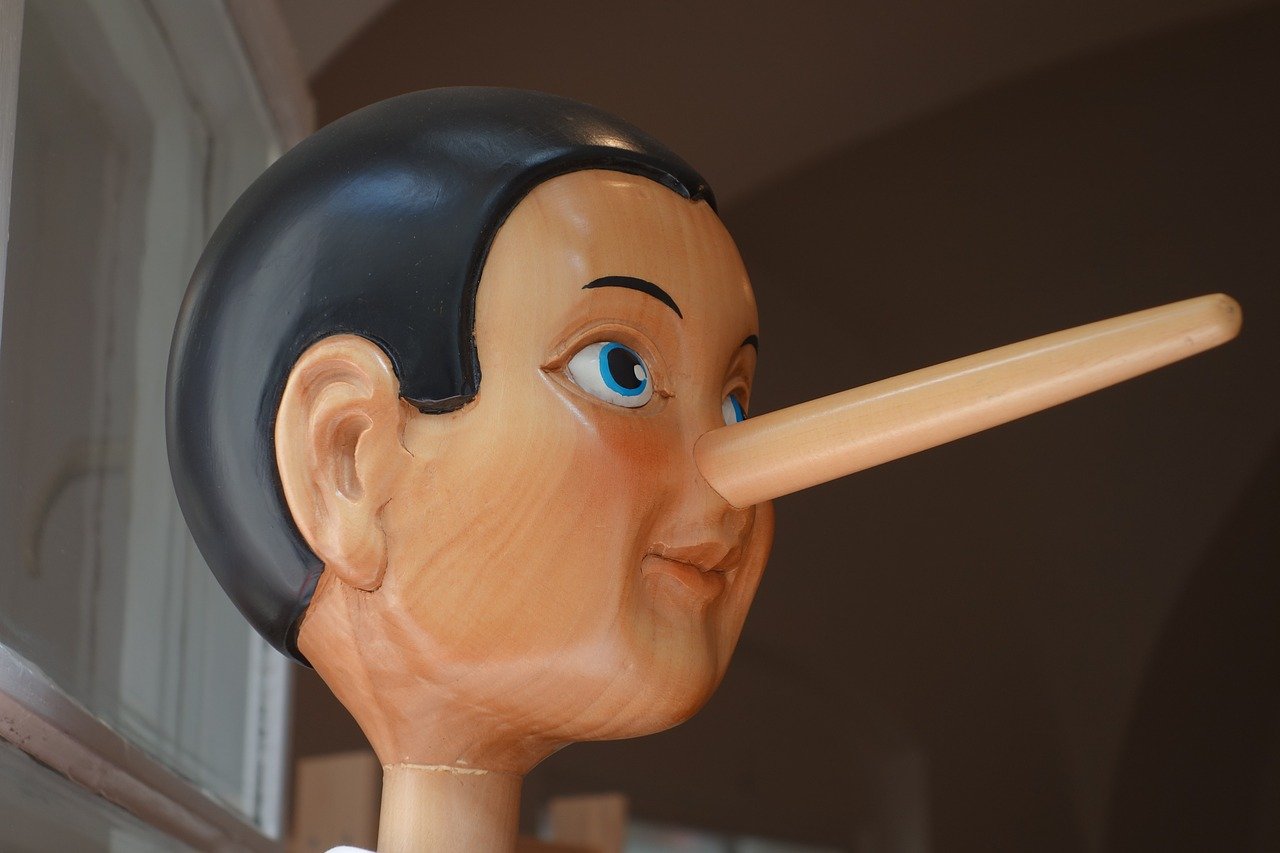Navigating the World of Defamation: Understanding the Libel and Slander
30 Jan 2023
8 Jun 2020
min read

What do you do when someone has been spreading malicious rumours about your business online? What kind of defamation would spreading malicious rumours constitute, slander, or libel? With defamation being one of the most common civil trials that arise out of business operation, it is crucial that you can identify whether your business has been libelled or slandered, so you can take legal action if necessary. Defamation is a false statement of fact that is intended to damage a person’s reputation. Libel and slander are types of defamation - the difference is that libel is a defamatory, libellous statement made in writing, while slander is a defamatory statement made orally.
A. What is Defamation?
Defamation is a spoken, written or published untrue statement made with the intention to damage an individual’s reputation. Defamation of character happens when something untrue and damaging is presented as a fact to someone else. A defamatory statement usually does the following:
-
It lowers the victim in the estimation of a right-thinking member of society generally;
-
It makes them shun or avoid the victim;
-
It subjects the victim to public hatred, contempt or ridicule; or
-
It demeans the victim in his or her profession or business.
Defamation falls into the category of tort law concerning persona or property. To bring defamation claims, you will have to prove that an individual made a false statement dispensed as the truth, and has communicated this representation to a third party. This has to have caused injury or damage to your character or business.
Let’s give you an example. Imagine that Hugo has a hot dog stand. Bob, a customer, makes the claim that ‘Hugo hotdogs are made of actual dogs’. If Hugo Hotdogs are, in fact, made of non-canine meat, Bob will have committed defamation against Hugo Hotdogs. A claim for libel and slander can also be made as long as the party being defamed is identifiable - there is no requirement that they are specifically named in the allegedly defamatory statement.
However, there are limits to what constitutes defamation. A simple complaint, for example, would not libel or slander.
Clearly, then, the difference between libel and slander is significant. To help aid your understanding, this article will first focus on the main difference between libel and slander. Then further addresses what constitutes libel or slander. We will also be introducing the various defences against claims for libel or slander. Later sections focus on potential damages and mitigation for libel or slander.

B. What is Libel?
Libel refers to a written defamatory statement that is found in print. It must be a defamatory statement or false representation that conveys an unjustly unfavourable impression.
In certain jurisdictions, however, spoken statements made on TV, radio or in other digital media that create a permanent record can constitute libel as well as slander.
C. What is Slander?
Slander is a spoken or oral defamatory statement made through speech. It must be a false spoken statement made with the intent of making people form a bad opinion of someone. Slander can be published through media platforms, blogs, speeches, statements on TV, etc.
D. What is the difference between Libel and Slander?
The main difference between libel and slander is how it is presented - ie: its form. Slander is defamation through a short-lived form of communication, such as speech. On the other hand, Libel is defamation of a person through a permanent form such as writing.
Note that representations through photographs, paintings, illustrations, status, and bodily gestures can also be regarded as defamatory. The detailed differences between libel and slander can be seen in the table below:
|
|
Libel |
Slander |
|
Definition |
Defamation in written words or visual form |
Defamation in speech |
|
Cause of Action |
(1) There needs to be a defamatory statement or message (2) The statement was made to a third party, (3) The announcer knew or should have known the statement was false, and (4) It causes injury to the subject of the statement. |
|
|
Who to sue |
Any person, company, or organisation involved in publishing the defamatory statement including: · Author, editor or publishing company · Distributors e.g. website owners and internet service providers |
|
|
Remedies |
Monetary reward |
Monetary reward |
|
Statutory limitation |
Varies depending on the jurisdiction but mostly 6 years. Time runs from the defamatory statement publishing date. |
Varies depending on the jurisdiction but mostly 2 years. Time runs from the defamatory statement publishing date. |
Another important difference between libel and slander is that for libel, damages are immediately presumed, whereas, for slander, the plaintiff must prove the damages, subject to this list of qualifications:
-
has committed a criminal offence punishable by imprisonment;
-
has an existing contagious/infectious disease;
-
is unchaste or has committed adultery; or
-
is incompetent or unfit in any office, profession, trade or business.
The standards for a plaintiff to prove slander are therefore higher since the plaintiff has to demonstrate to the court that he/she suffered some loss or damages (except under the four items above).

E. Examples of Libel
Libel refers to a defamatory statement made in a permanent form, such as written or in an art form. This also expands to printed statements or those made on the internet.
For instance, if Bob were to tweet the statement online, the statement could be libellous. A well-known example of libel would be the Lese majeste law in Thailand, where according to s112 of the Thai Criminal Code it is illegal to defame the king or the queen. Under this law, a Thai man was jailed for 35 years for insulting the King on Facebook.
F. Examples of Slander
Slander is a spoken defamatory statement. For statements to constitute slander, a third party must have actually heard the statement. For instance, if Bob exclaimed “Hugo Hot Dogs are made from real dogs!” to passers-by at the shop, the statement would more likely be slander rather than libel.
Since slander constitutes a spoken statement, it tends to be harder to prove as it is less harmful and does not last permanently.
G. How do I determine if a statement is Slander or Libel? What about a statement made online?
One of the most important elements in defamation is that the statement made by the alleged defamer must be a matter of fact rather than an opinion.
For instance, if Bob said Hugo's hotdogs ‘taste like dog meat’ instead of ‘are made of real dogs’, this is more likely to be considered a matter of opinion rather than a statement of fact. The statement would not constitute slander. On the contrary, stating that hotdogs are made of real dogs is a statement of fact and could be slander.
Statements made online are in writing and are often permanent, meaning that they generally constitute libel.
H. How do I identify the person who made the Defamatory statement online?
This is probably the most tricky bit if the defamatory statement was not made under a real social media account but was posted anonymously or under a fake identity. There are two main ways to identify an anonymous online defamer:
1. Request or Compel the Website to Identify the Defamer (Most Common Law Jurisdictions)
You can request the website where the defamatory comment was hosted to take down the comment and disclose the identity of the anonymous defamer. Most websites rarely take action, however, unless they are ordered to do so by a court. In general, the website will be compelled to disclose the identity to the plaintiff if: (i) there is a "prima facie" case by the plaintiff against the defamer; (ii) the plaintiff has made reasonable inquiries but is unable to identify the defamer; and (iii) the website has or is likely to have the information to help identify the defamer.
2. Filing a Defamation Lawsuit against the Anonymous Defamer (U.S.)
If the defamatory content is posted on a website based in the U.S., you can bring a defamation lawsuit against an "anonymous" or an "unknown defendant". To do this, you must first make a reasonable effort to identify the defamer. During the discovery process, you will be able to ask the court to issue a subpoena. You can first ask the website where the defamatory statement is posted is subpoenaed to provide the details of the defamer. If it returns a name, you can proceed to sue the defamer.
More often than not, it will return an IP address as a result of privacy law issues in disclosing personally identifiable information. You will need to take the next step of subpoenaing the ISP to disclose the identity of the person who made the defamatory statement. If the ISP fails to comply, you can take legal action against the ISP. You must prove to the court that you took all reasonable steps but are still unable to identify the defamer. This can be shown through emails, WHOIS search results, online records, and copies of subpoenas and responses to them.
I. How to write a Cease and Desist letter for Defamation?
The cease and desist letter must be well and correctly drafted such that it lists out accurate facts to support a case of defamation. An inconsistent or factually inaccurate letter can greatly damage your credibility and the ultimate prospect of success, whether in court or in the settlement process. You might want to get a law firm to prepare the letter, as the defamer is likely to take a letter from a law firm more seriously.
You may also choose to draft the cease and desist letter yourself if you do not want to spend money to hire a lawyer. Below is a list of Cease and Desist Defamation letters sample templates we have created for your use:
For a Request / Demand for Apology Defamatory Comment, please refer here.
For a Cease and Desist Letter Defamation of Character / Slander / Libel, please refer here.
For a Request / Demand for Removal Defamatory Comment, please refer here.

J. How do I know if it is a statement of fact or opinion?
Whether a statement is defamatory depends on whether the statement is a fact or opinion. A fact is a statement that can be proven true or false, whilst an opinion is an expression that cannot be proven.
K. What are the possible defences I can raise if I am sued for libel or slander?
The first defence you can raise is that the allegedly defamatory statement was not made towards the claimant (i.e. the one suing for libel or slander) in the first place.
If this defence does not stand, there are four other key defences available to a defendant in a libel or slander action: Truth, Honest Opinion, Publication on a matter of Public Interest and Privilege (Qualified or Absolute).
1. Truth
‘Truth’ is a complete defence that can be used if the accused can show that the statement they published or spoke is substantially true. If what was said is true, there is no case for defamation. Note that the burden of proof is on the accused to show that the statement is true.
Nonetheless, this defence can be complicated by the fact that the court will have to evaluate the intention of the individuals making the defamatory statement. A public figure making a claim on TV is fundamentally different from a private citizen tweeting a message.
If the person making the defamatory statement is a public figure - eg: Donald Trump rather than Bob claiming that Hugo Hotdogs are made of actual dogs; It will be assumed that trump must have known the statement was untrue or must have disregarded the statement recklessly for the statement to be libellous.
For private citizens, if a statement has been made with negligence as to its truthfulness, this would constitute libel. There are lower standards to prove a private citizen as guilty of libel or slander.
2. Honest Opinion
As previously stated, if the statement is an opinion, then the accused will not be liable for slander or libel. As long as an honest person with similar available facts could also have held the same opinion, then the accused will not be liable for slander or libel.
However, if the opposing party can prove that accused did not hold the opinion, for instance, by showing evidence of previous contradictory statements that show the accused intended to do this to attack a company’s reputation, this defence will not hold.
3. Publication on a matter of public interest
To use this defence, the accused must prove that he reasonably believed that publishing the statement was in the public interest, given the surrounding circumstances.
4. Privilege
There are two types of privilege: absolute and qualified privilege:
-
-
Absolute privilege: this covers limited circumstances, such as parliamentary and judicial proceedings made by officers of the government in the course of duty, and communication between lawyers and their clients.
-
-
-
Qualified privilege: this permits a person acting under legal, social or moral duty to make, relay, or report allegedly defamatory statements. The general public can also claim qualified privilege if he or she made the statement in the course of an employer’s duty. For instance, a news reporter might be able to rely on this privilege subject to local laws.
-
-
-
However, if there is malice (e.g. an intention to do wrong to others) in the making of the statement, qualified privilege cannot work as a defence. At common law, even though a member may be able to rely on a defence of qualified privilege in respect of a defamatory statement made in the course of a meeting, a representative of the press would not be able to do so.
-
For a Reply to Complaint on Defamatory Comments Defence, please refer here.
For an Acknowledgement and Assurance to Cease and Desist Letter Defamation of Character, please refer here.
L. Is Defamation/Slander/ Libel covered by Insurance?
One should note that a libel/slander claim might be covered by your insurance for your company. This normally is part of the general liability policy which falls under Personal and Advertising Injury Coverage.
Four conditions need to be satisfied before you can claim for insurance:
-
The act (libel/slander) must have been committed in the jurisdiction covered by your policy and during your policy period;
-
The offence must have arisen out of your business operations;
-
The offence must have been committed by people/firms that are insured; and
-
The statement must be published orally or in written form. The statement must also slander or libel a third party.
M. Damages and Mitigation
A successful libel or slander claim will normally be rewarded with compensation alongside legal costs covered by the opponent. The amount of monetary reward depends on the seriousness of the allegation and the type of harm caused.
Should the case be in favour of the claimant (i.e. the one who brought the slander or libel claim), it is also possible to obtain a court order to prevent further publication of the statement (this is known as an injunction). If the case is resolved by settlement outside court, it is also possible to seek undertakings from the accused to not repeat the allegations.
N. Do I have to go to court for a slander/libel claim?
Going to court is often costly, and it is not necessary/best not to go to court to deal with slander/libel. One should always try to first write a letter of complaint (e.g. cease and desist letter) to the offender as courts tend to encourage parties to resolve matters without going to court due to timing/cost reasons.
For more knowledge of alternative dispute resolution, please see our guide to ADR.
As mentioned above, we have created examples of strongly worded cease and desist letters which you can customize depending on your specific circumstance:
|
Cease and Desist Letter |
https://docpro.com/doc1547/cease-and-desist-letter-defamation-of-character-slander-libel |
|
Cease and Desist Letter |
|
|
Acknowledgement and Assurance to Cease and Desist Letter |
https://docpro.com/doc1548/cease-and-desist-letter-defamation-of-company
|
O. Can I get an apology for libel or slander?
Yes - it is common for apologies to be demanded in cease and desist letters. It is also common for defendants to publish an apology as part of the settlement deal.
However, a court cannot force the accused to apologize. Therefore if the slander/libel claim went into a trial, one normally obtains a judgment in one’s favour with a monetary award of damages (without apologies).
P. Can I stop a defamatory statement that is about the be published?
It is rare to obtain an injunction against potential libellous publication as it might interfere with freedom of speech.
However, you may be able to dissuade the publisher from publishing by demonstrating that the allegations are false and the publisher is taking a high legal and financial risk by publishing such a statement.
You could also try changing the narrative by getting in touch with the publisher and telling them facts from your point of view.
Please note that this is just a general summary of the position under common law and does not constitute legal advice. As the laws of each jurisdiction may be different, you may want to speak to your lawyer.
Keywords:

